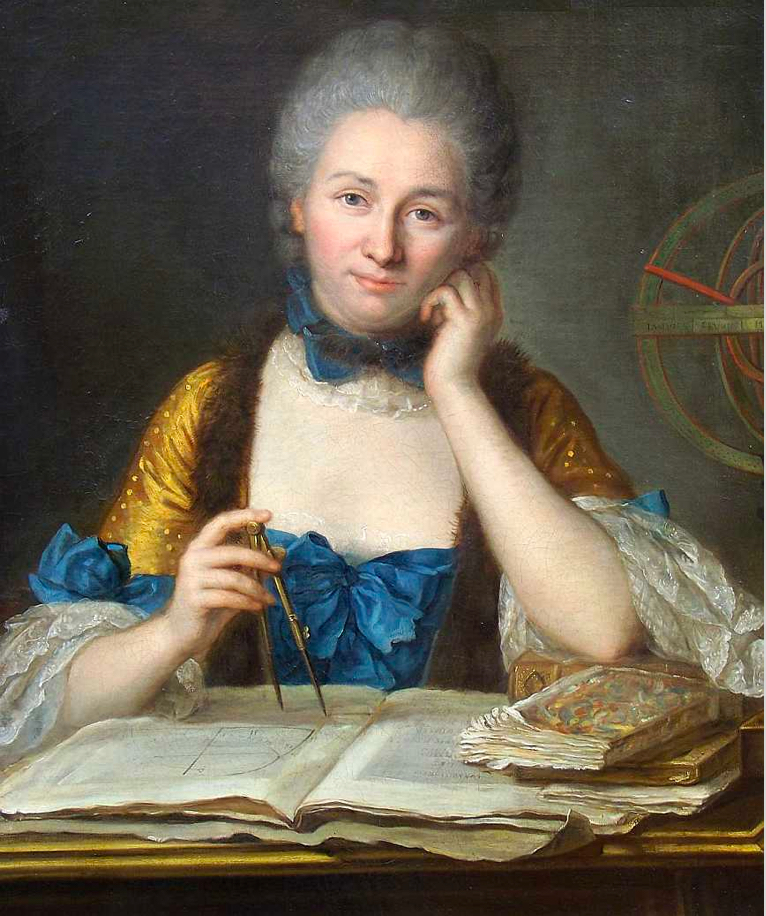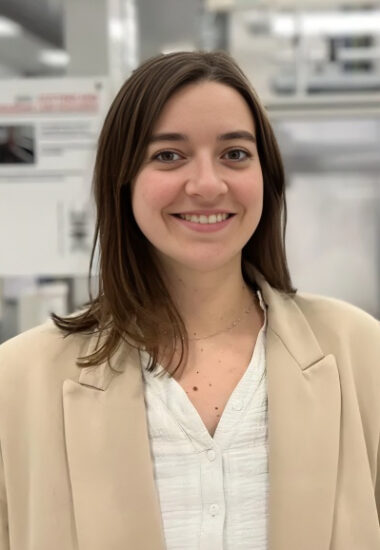
Why a career in tech?
It quickly became obvious to me as a teenager, and I recognize how fortunate I was to discover my path at an early age when it can be so hard to figure out for young people to choose their career options.
I’ve always been interested in scientific disciplines, particularly Chemistry, but also a strong affinity with foreign languages. I joined the scientific European class at my high school, which included presentations by professionals, notably engineers and researchers from the University of Cambridge. Their focus on the role of engineers in the energy transition immediately resonated with me.
From that day, every choice I made was aimed at refining my goal: to become a chemical engineer in the industry and contribute to the energy transition.
Your professional experience?
After earning my science baccalaureate (equivalent to high-school diploma), in 2015, I began my studies in Nîmes with a two-year preparatory course to pass highly competitive exams in Physics-Chemistry. I then pursued a bachelor’s degree in chemical sciences at the University of Montpellier, eventually joining INSA Rouen to specialize in chemistry and engineering. In my final year, I focused on process engineering and nuclear chemistry to target roles in industry that were in line with my career interests.
In 2021, I returned to my hometown, Beziers, to join the “methods” department at Genvia, a startup company committed to decarbonizing industry.
This young company, founded in March 2021, produces high temperature electrolyzers to deliver decarbonized hydrogen production directly to industrial clients.
Your first experience with technology?
In 2019, I completed a three-month internship at the Barcelona Biomedical Research Park. I developed detection kits for African swine fever by synthesizing peptides. This internship was pivotal in shaping my career path, as it allowed me to understand what I liked and disliked about academic research and why I wanted to pursue a career in industry instead:
- I developed an analytical and rigorous mindset, essential for conducting research projects.
- In industry, projects often have an immediate and direct impact.
- Material and financial resources were challenging to secure in research, and projects could be stalled due to a lack of means.
What do you do today, and why?
Since 2024, I’ve been a project manager in Genvia’s industrialization department. My team’s mission is to design the future evolution of production lines, considering increased production rates, product developments, and technological advancements. I oversee projects from defining needs to commissioning equipment, including selecting suppliers, conducting risk analyses, and supervising installation.
The best part is that every day is different, and I have complete autonomy in managing my projects. I regularly discover new technologies to optimize our product, which keeps me engaged and inspired!
Your strengths in this role?
Throughout a specific project, I work with all departments in Genvia. My broad-based training allows me to adapt quickly, even if I have limited knowledge of specific expertise of my colleagues. My sociable personality made it easy for me to integrate into the dynamic group of professionals and I quickly found my footing within a growing team and got to know my colleagues well.
The success of any project is directly linked to team synergy, and I firmly believe that an individual’s interpersonal skills can often outweigh their technical expertise.
Past challenges, failures and disappointments?
At the end of my preparatory course to pass the competitive exams, despite successfully passing the exams, I did not obtain a place in one of the top-choice schools that I applied for.
I could have repeated a third year of preparatory classes to improve my ranking, but I chose instead to aim for my first choice, INSA, a network of schools that accepts students based on their academic record rather than competitive exams.
I leveraged the two years of hard work to rank among the top students in my graduating class, thereby strengthening my application.
The following year, I joined INSA Rouen, and I have never looked back since.
Best moments, successes you’re proud of?
In 2022, I found out that it was possible to continue with Genvia for as long as I wanted and this, I am very proud of. Genvia had already given me incredible experience and achievements since the beginning of the adventure and knowing I could create even more was a dream come true.
People who helped, influenced -or made your life difficult?
My parents have always supported me. I owe much of my success to my mother for her delicious, packed meals that helped me focus on my studies and my father for always finding the right words to motivate me in moments of doubt.
Your hopes and future challenges?
The challenge of becoming a mother. It will is the biggest challenge of my life, and I my goal to set-up a good balance between family life and career growth. I refuse to set limits for myself and look forward to all the opportunities the future may hold.
What do you do when you don’t work?
I read a lot, perhaps too much, according to some people around me! I tend to lose myself in books.
I also love dancing. It is essential to have an activity that helps release daily stress and recharges the batteries for the next day, and for me, that is dancing.
Though time is not always available, painting and drawing are also on my list. With each brushstroke, I feel closer to my grandmother, who shared her passion for art with me.
Lastly, spending time with my family. Every moment is precious.
Your heroes -from History or fiction?
Emma Goldman, a feminist activist who championed the importance of art, including dance, in everyone’s life. She famously said, “If I can’t dance, I don’t want to be part of your revolution.” Like her, I cannot imagine life without dancing.
A saying or proverb you like in particular?
“Failure is where we learn the most.”
I’ve heard this phrase many times while facing the challenges at Genvia. To me, it means trusting yourself and never being afraid to try, take initiatives, or share ideas, good or bad, without fear of failure. That’s how innovation is created, and there’s always something positive to take away.
A book to take with you on a desert island?
“Terrienne” by Jean-Claude Mourlevat. The text on the back-cover ends with, “You’ll never breathe the same way again.” That was precisely how I felt when I closed the book for the last time, and it is likely how I would feel after an unexpected stay on a deserted island.
A message to young female professionals?
Never give up. We are all capable of reaching our goals; we just need to set them and think, “Why not me?” At every stage, I’ve told myself, “You don’t have a choice; it’s up to you, so if you truly want it, you will succeed. Trust yourself.” Like a mantra. Most of the time, it works. When it does not work, I tell myself it was just a step in the journey, and maybe a small detour is necessary but never lose sight of the goal!

